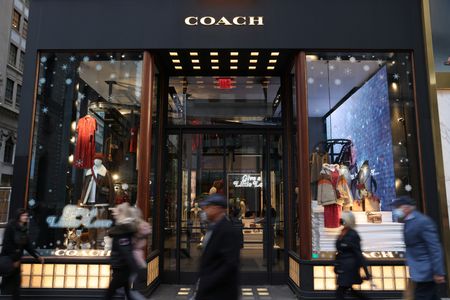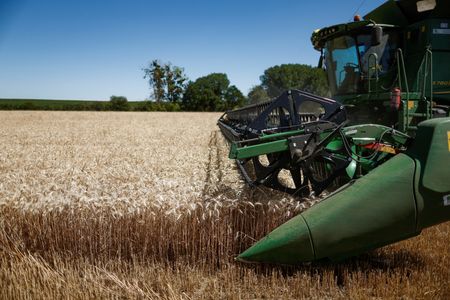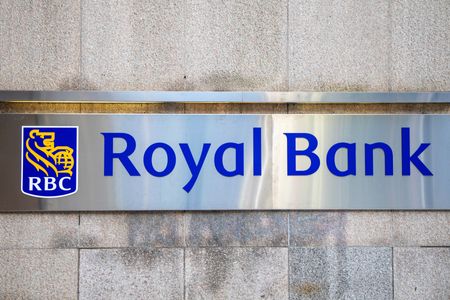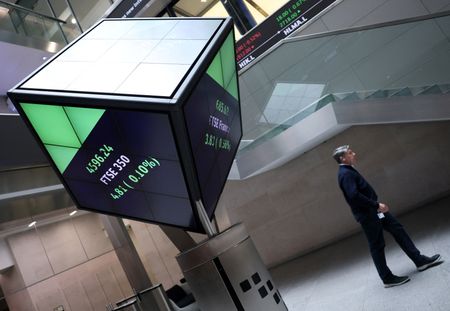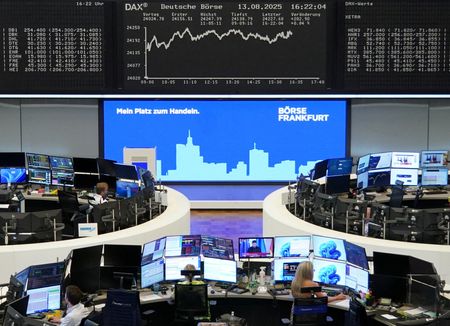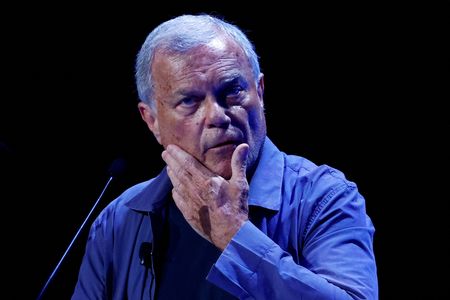By Anuja Bharat Mistry and Samantha Marshak
(Reuters) -Coach parent Tapestry forecast annual profit below expectations due to rising tariffs, sending its shares plunging 14%, and said it planned to cut the number of handbag styles offered as retailers try to offset the impact of import duties.
The company said tariffs imposed by President Donald Trump would cost it about $160 million for its fiscal 2026, following warnings from other upmarket retailers such as Gucci-owner Kering and French luxury group LVMH on the hit from the levies.
The retail industry relies heavily on production from Southeast Asian countries, and now must bear the cost of roughly 20% tariffs on goods brought in from those nations. Tapestry makes its Coach and Kate Spade handbags primarily in countries such as Vietnam, Cambodia, the Philippines and India.
The tariffs will disproportionately affect Kate Spade as the vast majority of its business is in the United States, chief financial officer Scott Roe said.
Tapestry said it would cut the number of Kate Spade handbags it offers by 30%. Several retailers have reduced the range of inventory they are importing as weaker-selling brands become less attractive to ship with added tariffs.
“Tariffs are now forcing brands across the consumer spectrum to take a closer look at their assortments and focus on their most profitable SKUs, which can also help preserve margins by reducing the need to markdown,” eMarketer’s Sky Canaves said.
The company’s quarterly sales came in at $1.72 billion, ahead of the LSEG analyst consensus for $1.68 billion. Tapestry also said it expects annual revenue of $7.2 billion, ahead of expectations.
Adjusted profit for the quarter ended June 28 was $1.04 per share, topping estimates of $1.02 per share.
Tapestry expects fiscal 2026 earnings-per-share in the range of $5.30 to $5.45, compared with estimates of $5.49 per share, according to LSEG data. The company expects a 60-cent tariff hit to its annual profit, with the end of the “de minimis” exemption on small shipments accounting for about a third of the impact.
“Even within Tapestry, the sought-after Coach brand should be able to pass down more of the tariff costs to customers via higher prices than Kate Spade, which is less in demand,” Canaves added.
Companies this year aggressively increased imports ahead of Trump’s imposition of tariffs. So far, U.S. businesses have mostly absorbed the rising import costs, but Goldman Sachs economists believe that will change in the coming months. While consumer-level inflation has remained relatively steady, inflation at the producer level spiked in July.
Tapestry sales declined 11% in Japan and revenue decreased 1% in other Asian countries.
Shares of the company have risen about 74% this year, largely due to the appeal of Coach bags that have won over younger consumers.
(Reporting by Anuja Bharat Mistry in Bengaluru; Samantha Marshak in New York, Editing by Leroy Leo)

